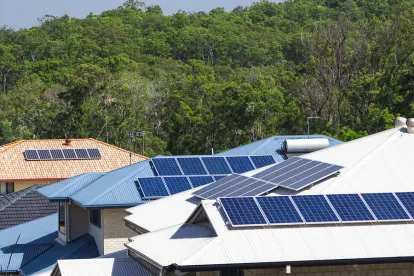With more and more emphasis on clean, renewable forms of energy, the development of solar energy farms is increasing rapidly. Solar energy farms are large-scale commercial power plants that use solar panels to convert sunlight into clean energy, providing a source of safe, locally-produced renewable energy for many years after construction. A solar energy farm feeds power into the electrical grid just as fossil-fuel energy plants do, except that solar farms produce no pollution and use very little water.
Solar Energy Lease
As part of their development efforts, solar energy companies, which are often recipients of governmental monetary incentives to construct these farms, seek to lease parcels of land on which to construct their facilities. Key factors in the land selection process are the amount of land available to lease and its location.
Not surprisingly, when a solar energy company contacts a landowner about a potential lease, the company will seek to have the landowner sign the company’s standard form of lease. Entering into a solar energy lease can be a source of passive income for a landowner, but before becoming a landlord, the landowner should be mindful of several key aspects of any proposed lease.
What Landlords Should Know
- Term: the term of the lease could be lengthy, typically 40 or more years
- Due Diligence: the solar energy tenant will want a substantial amount of time (e.g., two years) to perform studies and other due diligence in exchange for only a small payment (e.g., $500)
- Rent: the solar energy tenant may seek to keep rent fixed for the entire lease term
- Mortgages: the solar energy tenant will seek to prohibit or limit the landlord’s ability to mortgage the property in the future
- Use of Adjacent Property: the solar energy tenant may want access, easements, and other rights with respect to adjoining property owned by the landlord
- Representations and Warranties: the solar energy tenant may seek broad representations from the landlord, including representations about the state of title to the property and the environmental condition of the property
- Remedies: given the substantial capital investment involved, the solar energy tenant will seek broad remedies in the event the landlord defaults
The above matters are not exhaustive. In any lease, the solar energy landlord should also address insurance, indemnification, timber rights, taxes, and the condition of the property at the end of the lease term.





 />i
/>i

